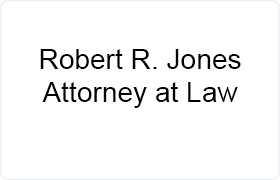Lake Jackson White Collar Crime Lawyer, Texas
Sponsored Law Firm
-
 x
x

Click For More Info:
-
Robert R. Jones Attorney at Law
3526 E. FM 528 Suite 204 Friendswood, TX 77546» view mapCriminal Defense Expert Representation for Reasonable Rates
If you need representation, call me 24/7.
800-883-8760
Not enough matches for Lake Jackson White Collar Crime lawyer.
Below are all Lake Jackson Criminal lawyers.
Mark Robert Davis
Dispute Resolution, Wills & Probate, Family Law, Divorce & Family Law, Criminal
Status: In Good Standing Licensed: 45 Years
Larry J. Schwertner
Commercial Real Estate, Wills, Family Law, Criminal
Status: In Good Standing Licensed: 54 Years
Stanley Allen Simiskey
Juvenile Law, Other, Family Law, Criminal
Status: In Good Standing Licensed: 18 Years
 Robert Jones Friendswood, TX
Robert Jones Friendswood, TX AboutRobert R. Jones Attorney at Law
AboutRobert R. Jones Attorney at Law Practice AreasSpecializations
Practice AreasSpecializations
